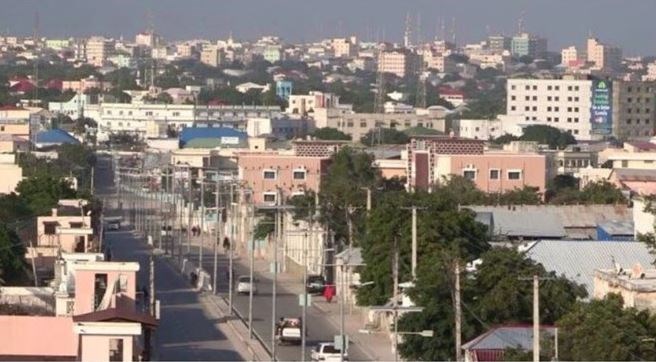
Sunday September 16, 2018
Somalia could be split into six regions after five regional federal states announced that they would no longer co-operate with Mogadishu until their grievances about insecurity, sharing of natural resources and the interference by the central government in their affairs are addressed.
Following the August 8 announcement, Somalia President Mohamed Abdullahi Mohamed Farmajo has called a National Security Council meeting on September 17 which is expected to deliberate on the future of the federal nation. It was not clear at the time of going to press whether the five states will attend the meeting.
Somali analysts said the decision by the five regional presidents — Abdiweli Mohamed Ali Gaas (Puntland), Ahmed Duale Gelle (Galmudug), Mohamed Abdi Ware (Hirshabelle), Sharif Hassan Sheikh Aden (South West State) and Sheikh Ahmed Madobe of Jubbaland — could embolden Al Shabaab and negate the gains made by the African Union Mission in Somalia (Amisom) with the support of the international community.
“The Council expresses its concerns the deepening political crisis and growing differences among the major stakeholders of Somalia. The interference in the internal affairs of the federal member states clearly undermine the constitutionally mandated separations of powers,” they said in a statement.
Abdirahman Warsame, who was a presidential candidate in the February 2017 elections, told The EastAfrican that the strength of the relationship between the central government and federal states will determine the outcome of the war against terrorism, because Amisom is overstretched and cannot liberate new areas.
He said the Somalia National Army is incapable of holding on to liberated areas because it is demoralised, lacks sufficient personnel and is ill-trained and ill-equipped.
“The key and the central challenge of defeating terrorist is to build a Somali national army and a Somali police force that are nationally respected,” said Mr Warsame.
Abdullahi Abdi Mohamed, chairman of the Aratgi Wadaag, a pro-government political think tank defended the president, saying the centre had gone out of its way to engage federal states. He said said there had been agreements on the national security architecture and financial support to federal states following the increased support from donors.
However, he noted that the leaders were former warlords, who have lost support form their federal governments and found it difficult to survive a transparent and democratic institutions.
“These leaders are not willing to be held accountable for their current and previous actions, and are not willing to subscribe to the new realities of enhanced accountability. We hope that they will attend the meeting and agree with the central government on the framework for operations and integration. If they refuse, then it will demonstrate that they are resisting the unity of Somalia and want to maintain the status quo that is clan-centric,” said Mr Mohamed.
Somalia is made up of six regions — the Capital Mogadishu (Benaadir Region), Puntland, Galmudug, Hirshabelle, South West State and Jubbaland.
Currently, President Farmajo with the support of Amisom controls Mogadishu and its surrounding, while Al Shabaab cut off road links between Mogadishu and the states. There are no road linking the capital Mogadishu and regional towns towns like Kismayu, Jowhar, Barawe and Baidoa.
The five regions have not been keen on contributing troops to form a strong national army as part of the National Security Architecture that is being funded by donors.
The World Bank, that has been supporting restructuring and recovery of the Somalia economy, has also released a report regretting that political disputes and fragmentation between the federal and state governments risks curtailing Somalia’s efforts at attaining debt relief.
Noting that growth in the Horn of Africa nation remains fragile, the global lender said in its third economic update for Somalia, that risks associated with reform delays are high in light of a slowed economic growth in 2017.
The Somalia Economic Update released by the World Bank on September 13 says that a slowdown on reforms could delay the normalisation of Somalia’s relations with the International Financial Institutions through the Heavily Indebted Poor Countries process which in turn would delay Somalia’s access to the International Development Association, a branch of the World Bank that provides grants and soft loans to the world’s poorest countries.
On insecurity, political instability and last year’s drought, Somalia recorded a 2.3 per cent economic growth while livestock export to the Middle East, which forms the backbone of the Somalia economy declined by 75 per cent.
However, the report says that Somalia’s economy is projected to grow at an annual rate of between 3 and 4 per cent.
